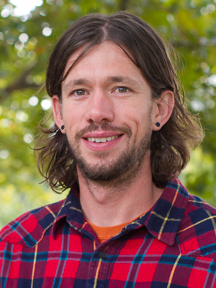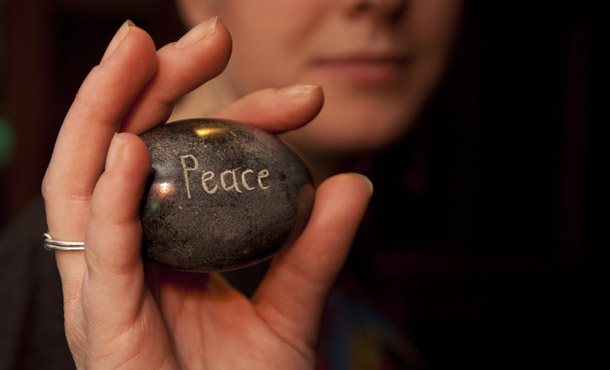For years it has been easy to find law schools and nursing schools in North America, but not so easy to locate schools specializing in the study of conflict and peacebuilding.
This has changed, with the advent of “The College Guide to Peace Studies Programs.” Found at www.peacecolleges.com, the guide is the only free, up-to-date listing of 40 American and Canadian colleges and universities that offer bachelor’s degrees – i.e., majors – in which the study of peace is oriented toward understanding the psychological and socio-economic roots of harmful conflict.
The site includes graduate programs, such as the master’s and doctoral programs at the University of Notre Dame, if they are housed in an institution with an undergraduate program.

“Almost all of the included programs emphasize reducing violence and addressing injustice as part of the peacebuilding process,” says the website, which credits two graduates of Eastern Mennonite University’s peace programs, Andrew Jenner (bachelor’s degree in justice, peace and conflict studies) and Bonnie Price Lofton (master’s degree in conflict transformation), for the information on the site.
Peacecolleges.com does not list “security studies” programs that “focus disproportionately on conflict analysis and do not take an explicit peace stance.” It also does not include some programs in criminal justice and mediation, “because of their narrower focus on the legal system.”
College guides do injustice to peace studies
“I began dreaming of this website when I became irritated that the major college guides would highlight colleges that offered niche programs like ones for horseback riders or for a ‘semester at sea,’ but would ignore or incorrectly report on peace study programs,” said Lofton, who also holds a BA in English from McGill University and a DLitt from Drew University. “And, of course, military programs at colleges have always gotten lots of attention.”

Jenner, who has an MFA in writing from Goucher College, and Lofton also produce the content for Peacebuilder magazine, issued biannually by Eastern Mennonite University’s Center for Justice and Peacebuilding.
In late May 2013, the 40 schools in The College Guide to Peace Study Programs received a preview of the listings, so that they could be updated as necessary and otherwise checked for accuracy, said Lofton. “But the guide will always be a work in progress,” she added.
Dale Bryan, assistant director of peace and justice studies at Tufts University, expressed congratulations and gratitude for “the impressive effort” behind the website. Harry Murray, director of Nazareth College’s peace and justice studies program in Rochester, N.Y., called it “a great resource.” Michael K. Duffy, who directs the peace studies major at Marquette University, agreed, “It’s a very helpful compendium.”
Educational consultant David J. Smith wrote that he wants to make community college students more aware of where they can earn a bachelor’s degree in the peacebuilding field. To that end, he began promoting peacecolleges.com on his blog in early September. Until recently, Smith was a senior administrator at the U.S. Institute of Peace in Washington, where he managed programs for colleges and universities.
Peace studies now an academic discipline in its own right
As an academic discipline, peace studies is a relatively young field, according to the website. “Interdisciplinary in its earliest stage of development, peace studies initially borrowed heavily from the social sciences to analyze and understand the nature and roots of conflict,” says the guide. “It is now recognized as a field in its own right, with theorists and academicians who began their careers and remain in the field of conflict studies and practice.”
More than half of the 40 programs listed on the site are housed in relatively small, private institutions. This likely reflects the long-held interest in peace work by certain religious peoples who founded colleges now offering peace studies, including Mennonites, Quakers, Church of the Brethren members, and a segment of Roman Catholics and mainline Protestants.
The orientation of the programs seems highly variable, however, with some placing great emphasis on practical skills and experiential learning, and others mainly focusing on the study of the philosophy of nonviolence.
Peacecolleges.com is searchable by name of institution, geographical region, type of institution (public, private, small, medium or large), and type of degree offered.
